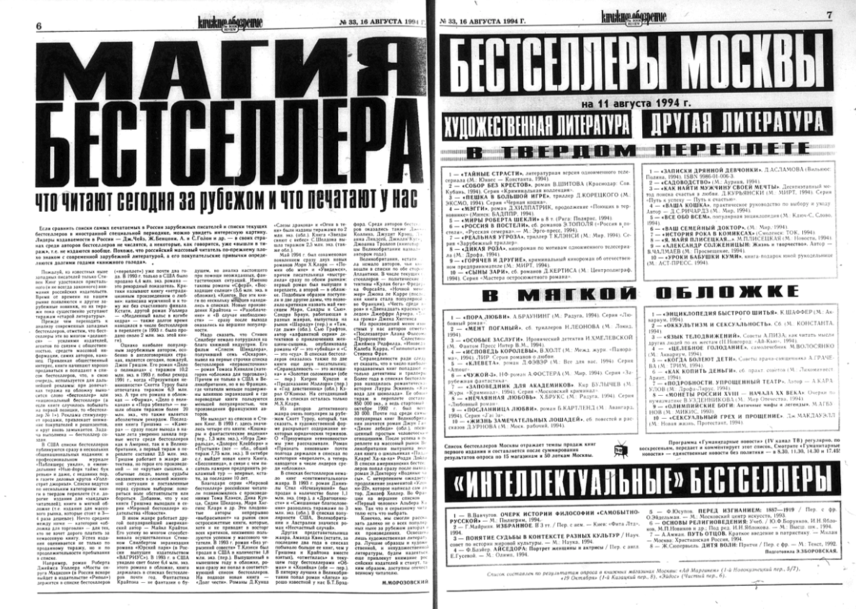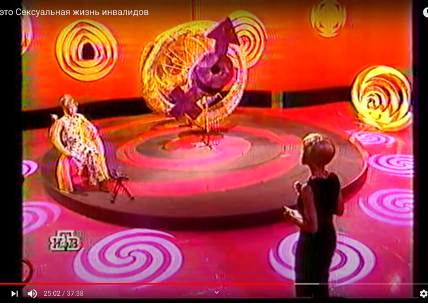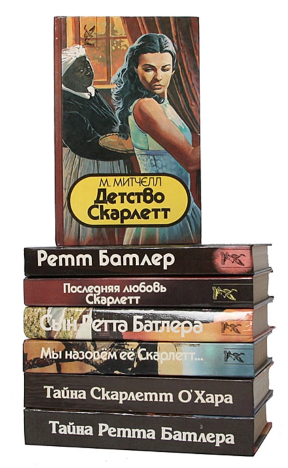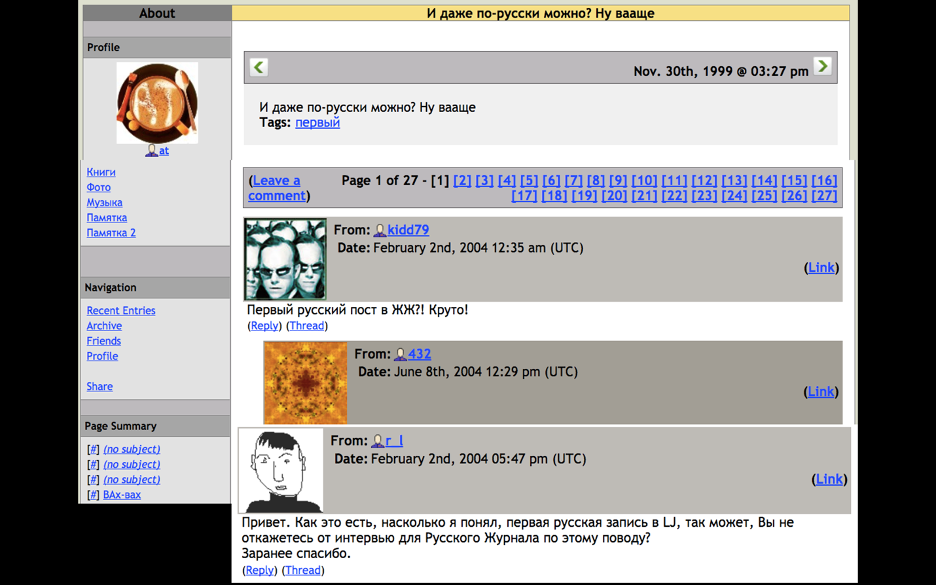Explore:
Bestsellers of Moscow
Post-Soviet Russia's first bestseller lists, compiled by the weekly industry newspaper "Knizhnoe obozrenie" and published from late 1993 through 1998.
Pro Eto. "The Sexual Lives of the Disabled"
Clip from "Pro Eto," a talk show hosted by Yelena Khanga, which brings together 1990s-era interest in sex with the increasing visibility of disabled people—and the disintegration of state institutions previously entrusted with their care.
Ekho Moskvy on the 1991 Putsch
Live coverage of the GKChP putsch in August 1991 from the Echo of Moscow radio station, demonstrating the chaos of the moment, the putschists' failure to control their message, and the power of a newly independent Russian media.
"Gone with the Wind"—The post-Soviet Sequels
A series of five collectively authored sequels to Margaret Mitchell's bestselling “Gone with the Wind” (1936). Writing in Minsk, Belarus, the anonymous authors published under the pseudonym Dzhuliia Khilpatrik (“Julia Hillpatrick”) and released titles like “We'll Call Her Scarlett,” “Rhett Butler's Son,” and “Scarlett's Last Love”
First Russian-language LiveJournal Post
A post in 1999 demonstrates that LiveJournal processes Cyrillic encoding, sparking the Russian internet's most pervasive and influential early social media site. LiveJournal, soon known simply as ZhZh in Russian (for “Zhivoi zhurnal”), became a platform for poets, writers, political activists, essayists—and graphomaniacs. It launched or catalyzed several literary and political careers, and fed the budding market for conspiratorial thinking in late 1990s-era Russia.
The Russian Booker—Scandals
A series of five articles scandalously decrying the Russian Booker, the new literary prize imported from England.





